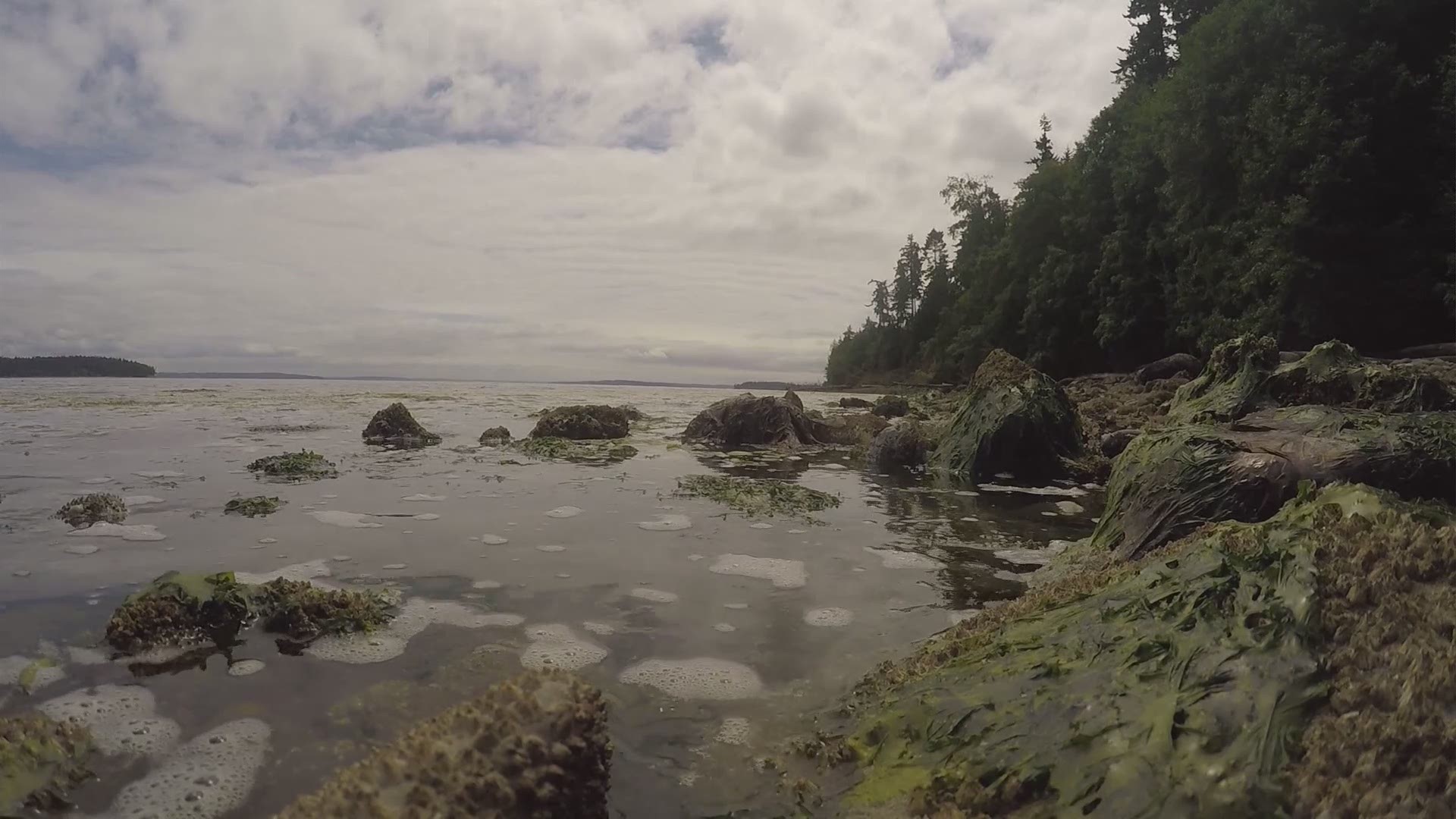PORT HADLOCK, Wash. — With a record number of dead gray whales washing ashore around Puget Sound this year, wildlife officials are running out of places for the whales to decompose.
They’re now asking private landowners for help.
A couple in Port Hadlock now has a whale cemetery in their backyard.
"A cemetery for one," said Mario Rivera. “The smell isn’t bad. It is very intermittent.”
Rivera always seems to find something new on the beach behind his house. Two weeks ago, he and his wife, Stefanie Worwag, didn’t just get a change in scenery -- they also got a change in smell.
“It is really a unique opportunity to have this here on the beach and monitor it and see how fast it goes," Worwag said.
The whale died in a shipping lane five miles south of their Port Hadlock home.
Wildlife officials needed to put it somewhere to dissect it, so the couple agreed.
“It’s not that bad so we are hoping other landowners will do this," Rivera said.
About 30 gray whales have stranded in Washington so far this year – the most in about two decades.
Sinking the whale in the water requires a permit from the EPA and the process is costly, according to NOAA, requiring towing and concrete blocks.
So, NOAA is looking for private landowners with beachfront property willing to let the whales decompose in their backyards.
“Private landowners stepping up would be fabulous. That would really help a lot because we never know where it’s going to land,” explained Port Townsend Marine Science Center Citizen Science Coordinator Betsy Carlson.
Wildlife officials expect even more dead whales before the year ends.
The federal government has declared an Unusual Mortality Event after 70 gray whales have washed ashore dead on the West Coast.
“With the unusual mortality event of these gray whales, we know more whales will be coming in, or there is a high likelihood that more whales will die within Puget Sound and out on the coast,” Carlson said.
Most of the whales appear to be skinny and malnourished, just like the one in Rivera and Worwag's backyard, which was a 40-ft adult male.
The two are also helping officials experiment with using lime to speed up the decomposition process.
“The lime appears to be working. It is decomposing nicely. I think,” Rivera said.
It may take months before this whale disappears entirely, but the couple says they don’t mind the wait.
“It is very unique,” Rivera said.

